The House of Representatives Committee on Transportation and Infrastructure held a hearing on March 7 to elicit industry perspectives regarding the discretionary grant programs overseen by the U.S. Department of Transportation.
[Above photo by House T&I committee]
Rep. Sam Graves (R-MO), chairman of the House T&I committee, noted in his opening remarks that the Infrastructure Investment and Jobs Act or IIJA authorized $196 billion over five years for new and existing USDOT competitive grant programs – representing 30 percent of total IIJA funding.
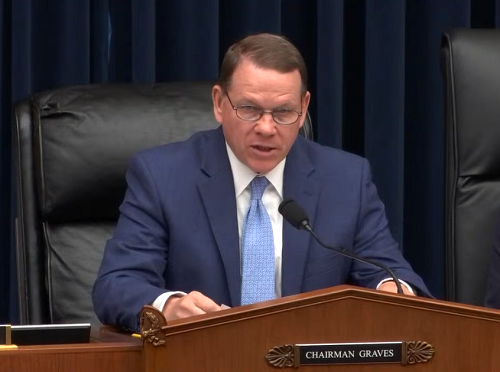
That is why he said the House T&I committee “has a keen interest in ensuring these taxpayer-funded grants follow the intent of the law and support projects that actually improve our nation’s infrastructure network and supply chain.,” he said.
“As [we] prepare for the next highway bill in the next Congress, it is important that we continue to ensure the best use of our infrastructure funding and find ways to improve the grant process,” Rep, Graves emphasized.
Rep. Rick Larsen (D-WA), the ranking member on the House T&I committee, noted at the hearing that he “welcomed the opportunity” to look at how to make USDOT grant programs better.
“As a former county council member, I can assure you that I understand the frustration that counties and cities have in accessing federal money, and why sometimes they choose not to,” he said in his remarks.
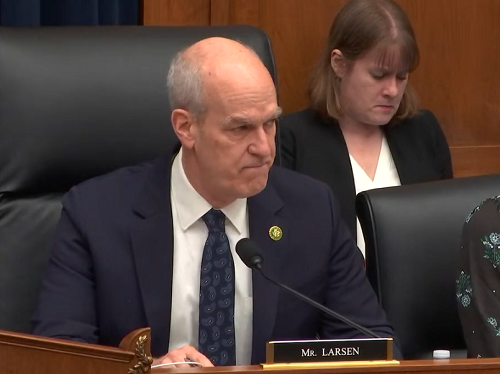
“There is one area where state legislatures, state DOTs, local governments, city, county, and tribal governments all agree: there is never enough money from the federal government when it comes to transportation funding,” Rep. Larsen added. “We can all agree on that as we look forward to 2026, when we have to do this all over again, and we should keep that in mind as we are trying to improve the process.”
Four witnesses provided testimony at the hearing: Alan Winders, presiding commissioner for Audrain County, MO, on behalf of National Association of Counties; Chuck Baker, president of the American Short Line and Regional Railroad Association; Amy O’Leary, executive director of the Southeast Michigan Council of Governments; and Jared Perdue, secretary of the Florida Department of Transportation.
Florida DOT’s Perdue noted in his testimony that previous federal transportation authorizations placed an emphasis on formula-based funding, which provided flexibility by the state departments of transportation to advance state-specific infrastructure goals.
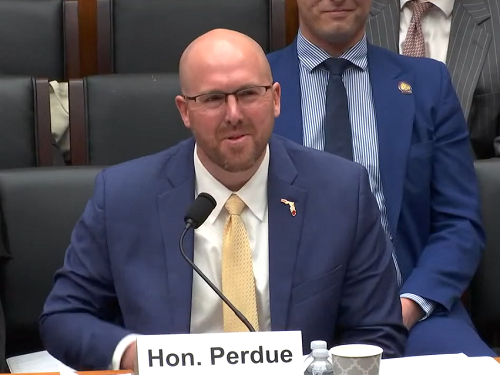
“Now, with IIJA, the number of competitive grant programs has skyrocketed from 13 to 45, placing less emphasis on states’ needs with more decisions being made top-down,” he stressed. “With the increase in discretionary programs, Florida DOT and local entities are required to compete for federal funding, which is timely, costly, and an overall burden to states and our local partners who want to deliver infrastructure, not wade through federal bureaucracy.”
Perdue noted that, under traditional formula funding, states rely on their calculated apportionment to best plan for programming and delivering projects for their communities. “Historically, states have received 90 percent of total surface transportation apportionments in formula program,” he said.
Perdue also pointed out that the time lag between applying for a grant and receiving one – if even selected – can create further fiscal complications.
“By the time a grant award is realized for a community, the effects of inflation – compounded by an 18 to 24 month delay in awards – have immediately driven project finances into the red,” he said. “Many state DOTs, cities, counties, MPOs [metropolitan planning organizations], and local agencies bear the responsibility of cost overruns due to the combination of inflation and slow agreements and authorizations.”
In sum, Perdue argued that the USDOT’s current discretionary grant process creates burdens for state DOTs and all applicants, and that
“Formula allocation of funds is more efficient and allows states to actually deliver infrastructure that is specific to their state and supported by their communities,” he said. “Florida DOT encourages Congress to lay the groundwork for the next transportation authorization that revives stronger formula funding.”
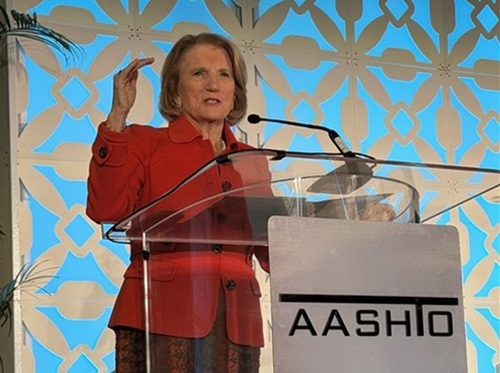 Top Stories
Top Stories
Congressional Leaders Detail Key Transportation Priorities
February 27, 2026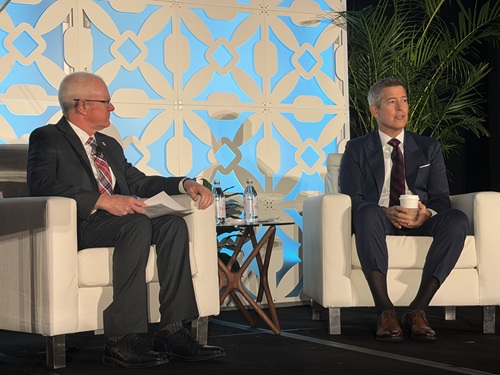 Top Stories
Top Stories

